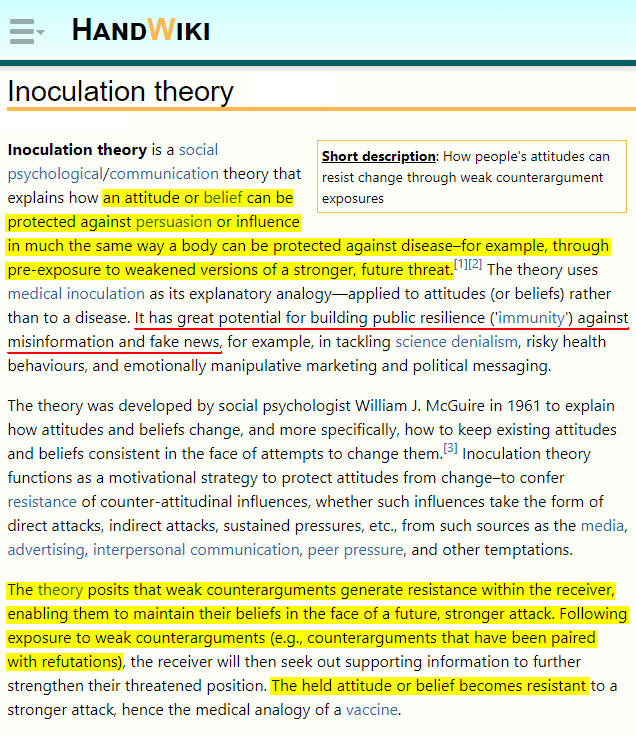
Inoculation works because it exposes people to counter-arguments, making them think about and rehearse rebuttals. When they hear stronger versions of the arguments in the future, they pay less attention to them, and perceive them to be easily dismissed. One example would be how the media portrayed anti-vaxxers as being fearful of 5G microchips in the needles. You see it in movies and TV shows too, where people like conservatives are shown losing political arguments easily or becoming easily convinced by shallow, non-convincing arguments for which they have no answer.
The goal is to convince the propaganda victim that their beliefs are correct, and they should ignore all future challenges to their belief system. They are thus resistant to all persuasion, despite being unable to answer the stronger arguments.